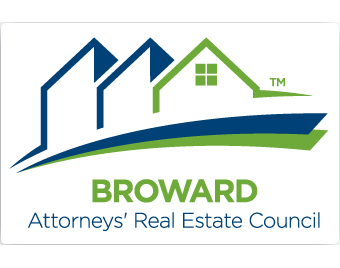According to data from the National Association of Realtors (NAR), there are approximately five million residential real estate transactions in the United States nationwide each year. There are many hundreds of thousands more commercial real estate sales. As complicated as they can be, most real estate transactions are finalized without serious problems.
Unfortunately, that is not always the case. At The Law Offices of Odelia Goldberg, we have extensive experience representing both buyers and sellers in real estate disputes. Within this article, our Fort Lauderdale real estate lawyer answers five of the most frequently asked questions (FAQs) about real estate litigation in Florida.
The term real estate litigation covers a broad range of disputes that can emerge from property transactions and/or property ownership. All parties involved in real estate matters—from buyers and sellers to landlords and tenants—should be prepared for the potential issues that could arise. Here are some of the most common reasons for real estate litigation in South Florida:
It depends. The statute of limitations for a real estate dispute in Florida can vary based on the underlying nature of the claim. Here is a general overview of the different statutory deadlines that may apply for a real estate dispute in Florida:
Yes. While there are many similarities between residential real estate litigation and commercial real estate litigation, there are also some important differences. Here are some of the most notable things that make residential and commercial real estate litigation different in Florida:
No. Not all real estate disputes end in litigation. Indeed, some sharp real estate disputes can avoid court. Indeed, many real estate-related disagreements or conflicts are resolved through alternative dispute resolution (ADR) methods such as mediation or arbitration.
With mediation, a neutral third party helps the disputing parties communicate and work towards a mutually agreeable solution. It is a less formal, quicker, and typically less expensive process compared to litigation.
Arbitration is another option where a neutral arbitrator or panel makes a binding decision based on the evidence and arguments presented by the disputing parties. Similar to mediation, arbitration can be more cost-effective and quicker than proceeding to court.
Even without utilizing formal ADR methods, parties involved in a real estate dispute often find it beneficial to negotiate and settle the matter amongst themselves. It is always best to evaluate non-litigation options for resolving a real estate dispute.
Are you locked in a real estate dispute in Florida? A proactive approach is key. Whether you are a buyer, seller, landlord, tenant, or contractor, an experienced real estate litigation attorney can help you determine the best course of action. The sooner that you consult with a Florida real estate lawyer, the better positioned you will be to find a viable, cost-effective solution. There is no one-size-fits-all approach to navigating a real estate dispute. Your case may best be handled through
negotiation, mediation, arbitration, or litigation.
Contact Our Fort Lauderdale Real Estate Litigation Attorney Today
At The Law Offices of Odelia Goldberg, our Fort Lauderdale real estate litigation attorney is a skilled and experienced advocate for clients. If you have questions about a real estate dispute, we are here to protect your rights and help you find the most effective possible solution. Contact us today to set up a completely confidential initial appointment. From our Fort Lauderdale office, we provide real estate litigation services in Broward County and throughout all of South Florida.







The information on this website is for general information purposes only. Nothing on this site should be taken as legal advice for any individual case or situation.
This information is not intended to create, and receipt or viewing does not constitute, an attorney-client relationship.
© 2024 The Law Offices of Odelia Goldberg. All Rights Reserved. Privacy Policy. Web Development by IWD Marketing